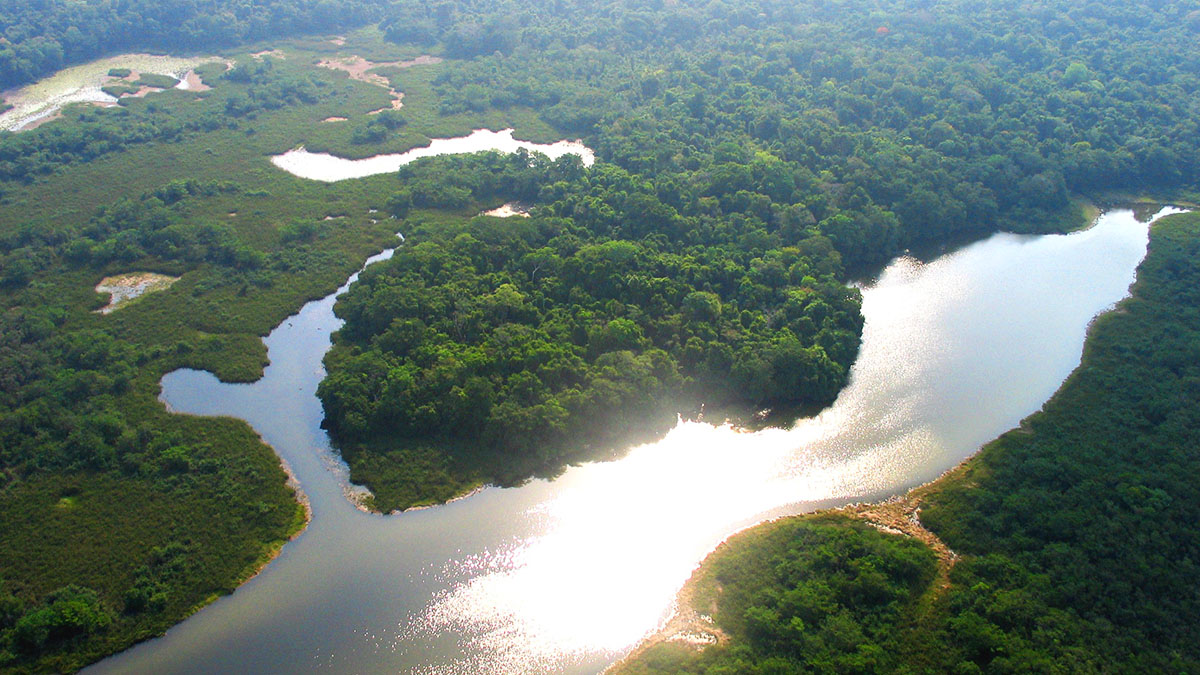Sustainable oil palm production is important for the conservation of natural and social resources (photo by WCS, Laguna del Tigre National Park).
For over a decade, Solidaridad Latin America has worked in partnership with stakeholders in the palm oil sector to develop and implement programmes designed to ensure the sustainability of the palm oil supply chain. These include the Roundtable on Sustainable Palm Oil’s (RSPO) certification standard with High Conservation Values (HCV) assessments, actions to reduce the sector’s carbon footprint, studies to identify a living wage levels to improve living conditions for workers, and due diligence efforts to comply with new regulations such as EUDR.
Despite significant progress, a challenge remains: How to ensure that the responsibility for sustainability is fairly shared among all stakeholders, so that no one – especially smallholders – is left behind.
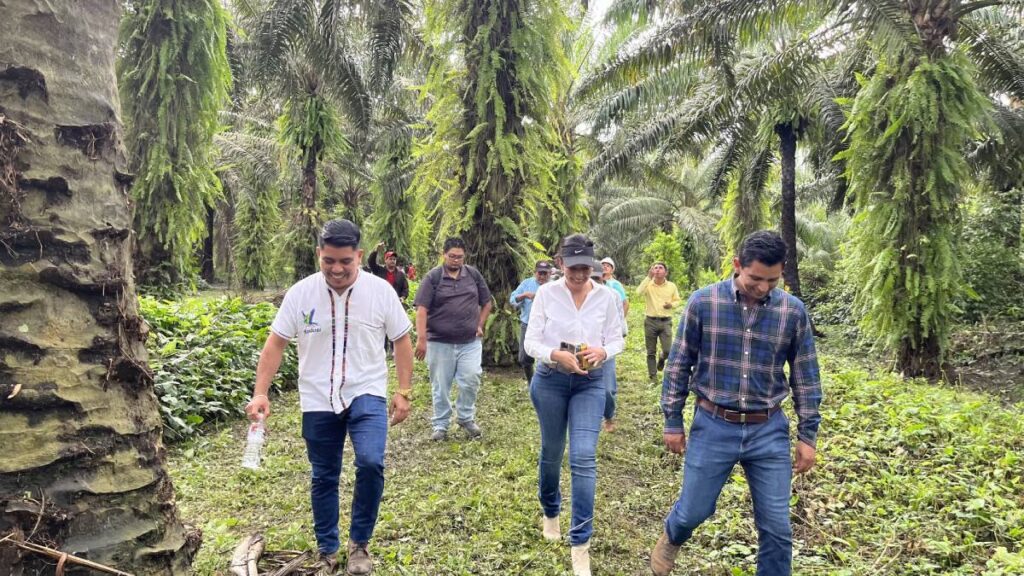
In light of new regulations and emerging trends in sustainability, action is underway in Central America and Mexico to meet the market’s new requirements. These efforts reflect a shared commitment to sustainable development and improved production conditions. In this article, we share the four strategies having the greatest impact on the palm oil sector in the region.
1. Solidaridad Latin America and RSPO partner to accelerate sustainable palm
We recognize that meeting market requirements calls for collaborative actions that amplify the efforts of every supply chain actor. In 2023, Solidaridad Latin America and RSPO partnered to implement regional strategies and support small-scale palm oil producers in their journey toward sustainability and certification.
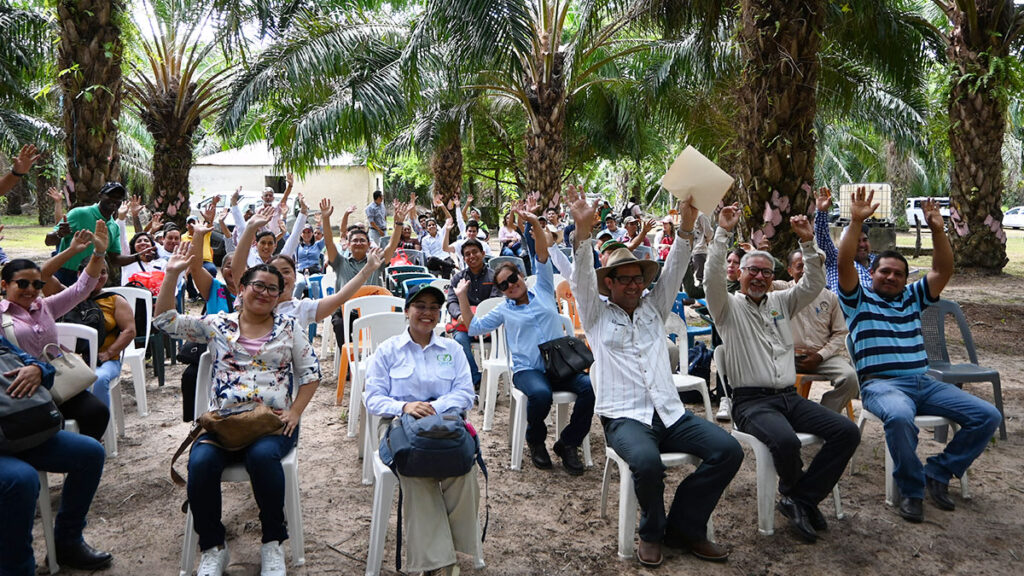
The goals of collaboration are designed to:
- Implement digital tools with the same methodology throughout the region to generate a unified overview of smallholders to achieve RSPO Independent Smallholders certification.
- Strengthen the growth of the RSPO Smallholder Trainer Academy (STA) in Latin America.
- Support each Latin American country as they define the best strategies for advancing the implementation of good practices for sustainable production and RSPO certification.
- Promote and strengthen compliance with European Union legislation.
- Position Latin America as a leading region in its support for smallholders in compliance with national and international sustainability guidelines.
As part of this commitment, we have participated in and conducted workshops at the RSPO Smallholder Academy at the Oil Palm Sustainability Research and Innovation Centre (CIISPALMA) in Mexico, in collaboration with the Mexican Palm Oil Federation (FEMEXPALMA) and the Institute for Cooperation and Self-Development (ICADE).
Additionally, with RSPO and FEMEXPALMA, we have delivered key trainings on gathering and managing geographic information and conducting simplified High Conservation Value (HCV) assessments for both existing and new plantations.
2. Agreements for sustainable and deforestation free palm oil production
In 2024, we renewed our collaboration with AAK in Mexico to promote sustainable palm oil supply chain practices. Through a Zero Deforestation and Sustainable Production agreement, we are fostering a shared commitment to closing gaps in certified production and ensuring zero deforestation for compliance with requirements like the EUDR. We aim to support smallholders, the primary actors in palm oil production in Mexico, and enable them to access European markets that require traceability and verification processes.
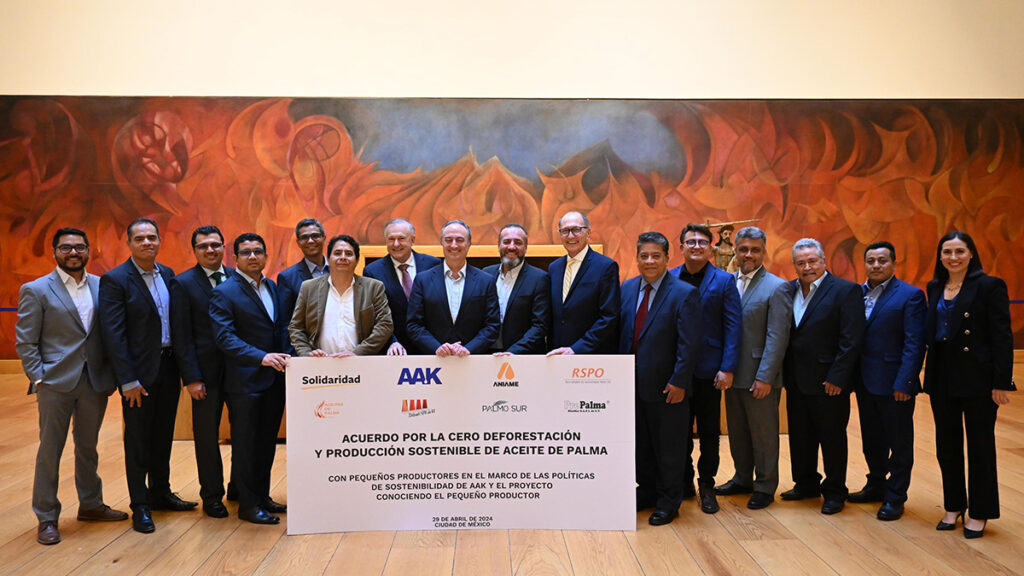
To achieve this, we launched a pilot project called Getting to Know the Smallholder, a collaboration between AAK, Solidaridad, ANIAME, and RSPO. This initiative, involving 250 smallholders and four extraction mills, aims to assess needs and gaps in sustainable and certified production. The pilot’s ultimate objective is to create a roadmap for RSPO certification for smallholders.
The pilot project’s evaluation will be conducted in two stages. First, we will use the Extension Solution, a digital tool developed by Solidaridad to meet the needs of independent smallholders. Additionally, AAK’s monitoring and evaluation framework will generate data on compliance with company policy.
3. Strengthening alliances in the Honduran palm oil sector
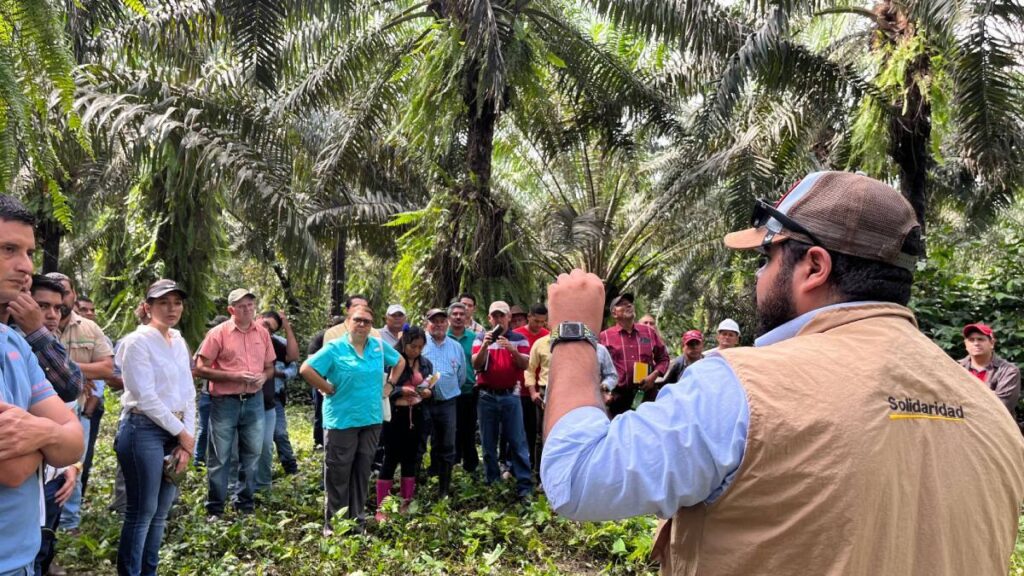
Within the framework of the Sustainable Palm Programme, Solidaridad Honduras is partnering with the Industrial Association of Oil Producers of Honduras (AIPAH), Grupo Jaremar, the Union of Palm Growers of the Atlantic Coast (UNPALA), and RSPO to promote sustainable practices and improve the competitiveness of the palm oil sector.
Solidaridad and AIPAH are introducing sustainable agricultural practices that help smallholders to improve their capacities and solve the challenges they face on a daily basis.
The partnership with Grupo Jaremar is focused on sharing knowledge and experiences, and developing workshops on social and gender inclusion to improve business sustainability in the supply chain.
The objective of the partnership with UNPALA is to strengthen the capacities of smallholders to achieve RSPO certification for their plantations. It also seeks to improve production yields and the quality of fresh fruit through training, workshops, experience exchanges, and the development of field schools.
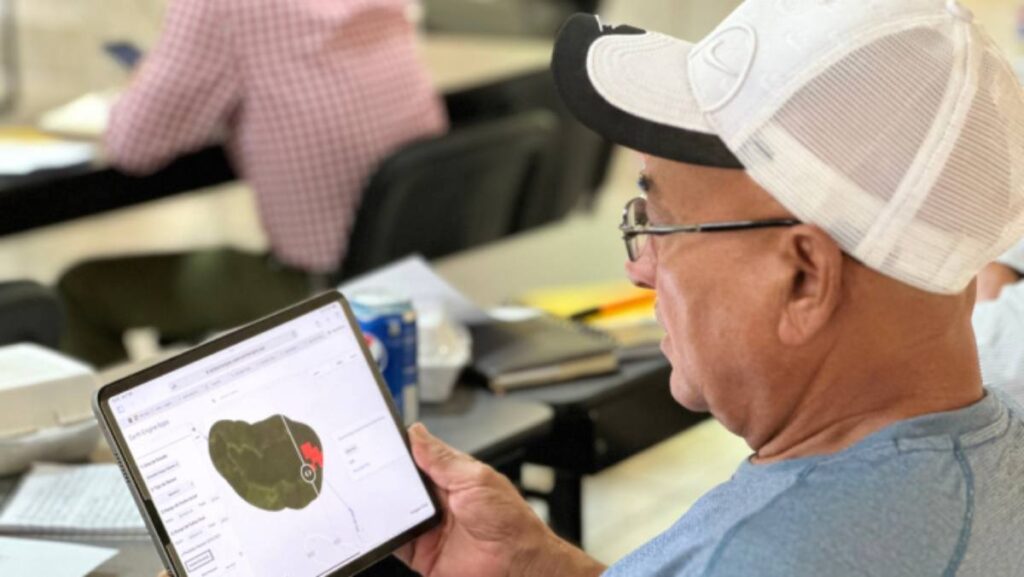
Between the three alliances, Solidaridad Honduras is continuing to promote sustainable practices. This will improve the competitiveness of small palm oil producers, support their efforts to comply with EUDR, while positioning themselves to access the European Union market.
4. Public-private model supports biodiversity conservation
A little less than a decade ago, Solidaridad initiated its programme to promote sustainable palm oil production. Civil society organizations, government agencies, and leading private companies work hand in hand to safeguard Guatemala’s natural and cultural heritage. With the support of implementing and verifying actors, the benefits of this initiative are being extended.
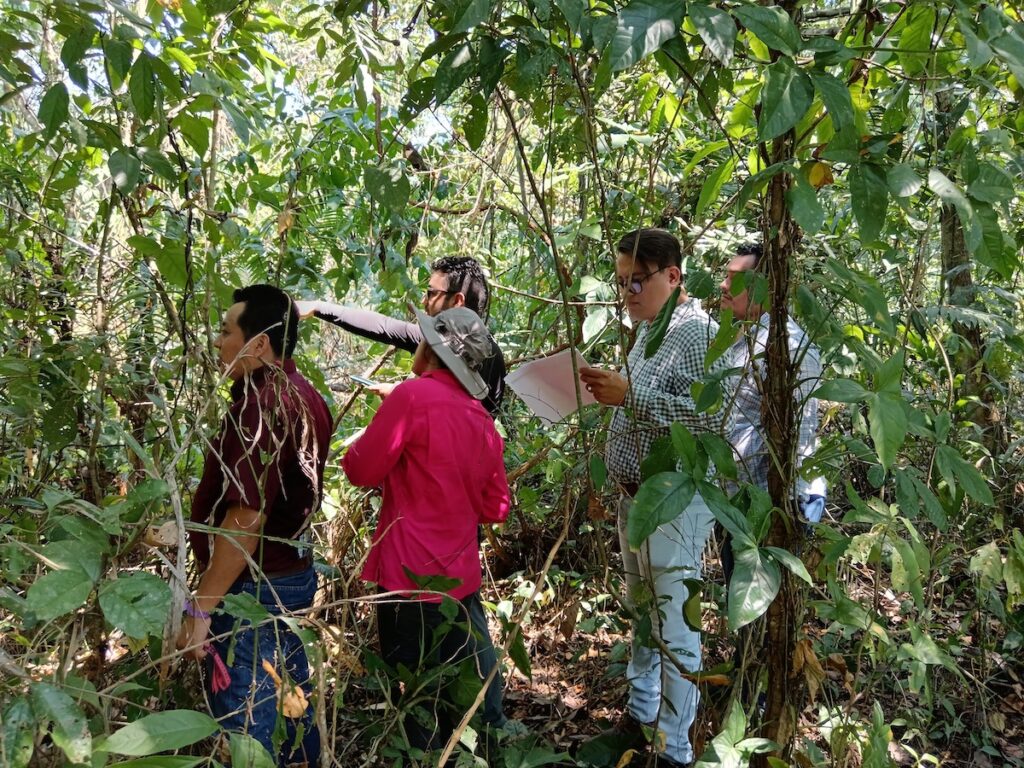
The Biodiversity Conservation Project in the Southeast of Laguna del Tigre National Park (PNLT) began in 2018 and will last for 25 years. The project is the result of the public-private alliance between the implementing partners that include the Wildlife Conservation Society (WCS), the National Council of Protected Areas (CONAP), and leading companies and members of the RSPO that includes AgroAmerica, NaturAceites, with the participation of Solidaridad.
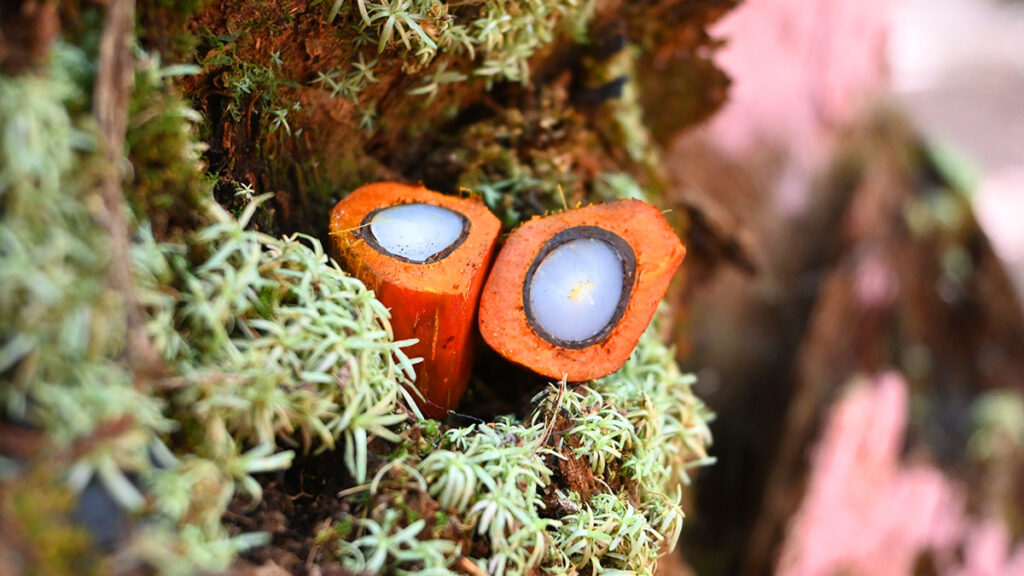
This consortium agreed on objectives and impact goals for biodiversity conservation and support for communities with regulated permanence in this protected area. With this type of long-term, multi-stakeholder project, it is possible to scale the impacts of sectoral collaboration. The main goals of this conservation effort are the following:
- Supporting the preservation of Mesoamerica’s largest wetland.
- Biological monitoring of species such as the jaguar, and the scarlet macaw conservation program.
- Prevention and control of forest fires through the Forest Fire Early Warning System.
- Support for communities living in protected areas.
While this regional conservation work represents a step forward for sustainable palm oil production, the global challenges remain complex. Questions persist about how to meet market demands, who should assume the costs of sustainability, and what is the cost of these sustainable practices.
At Solidaridad, we are dedicated to providing answers and building support for smallholders. However, the scale of the challenge necessitates a collaborative approach. We invite you to join us in driving transformative change and ensuring a sustainable future for the palm oil industry.

